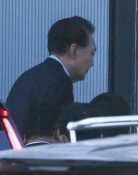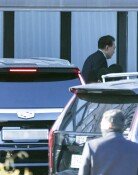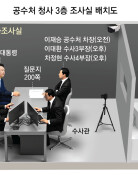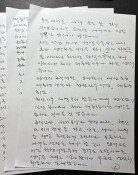DP pushes through special prosecutor's second bill
DP pushes through special prosecutor's second bill
Posted January. 14, 2025 07:53,
Updated January. 14, 2025 07:53
The Democratic Party of Korea pushed through the second special prosecutor’s bill on Monday in the National Assembly’s Legislation and Judiciary Committee. The bill expands the scope of investigations into the Yoon Suk Yeol administration’s foreign affairs activities, including six key areas: allegations of South Korean drones infiltrating Pyongyang, claims of a potential sewage balloon strike by North Korea, the Northern Limit Line (NLL) provocation, purported troop deployments to Ukraine, the operation of loudspeakers near the border, and increased leaflet distribution toward North Korea. The investigation aims to determine whether President Yoon orchestrated a so-called "North Wind operation" to provoke North Korea into military action as a pretext for declaring martial law. The People Power Party walked out before the vote, criticizing the investigation as unnecessary, stating, “Are you planning to investigate routine military responses such as loudspeaker broadcasts that the Kim Jong Un regime fears the most?”
If President Yoon, as commander-in-chief, encouraged armed conflict between the South and North, a thorough investigation is essential. A handwritten note found in the notebook of former Intelligence Commander Noh Sang-won, a key figure in the case, read: “Inducing North Korea to attack the NLL.” The authenticity and context of this note must be examined, including whether it represents personal musings or actual discussions with then-Minister of National Defense Kim Yong-hyun. Additionally, claims that former Minister Kim instructed the Joint Chiefs of Staff to strike the source of North Korea’s sewage balloons need verification. While the Ministry of National Defense denies these claims, stating, “There was no such order or North Wind operation,” confirmation of such actions would indicate serious risks of retaliation and potential military escalation.
Among the six investigation areas, allegations of drone infiltration, NLL provocations, and strikes on sewage balloon origins warrant detailed scrutiny. However, issues including anti-North Korea leaflet distribution, loudspeaker broadcasts, and unverified claims such as troop deployment to Ukraine could lead to unnecessary security debates.
Article 19 of the special prosecutor's bill, drafted by the opposition party, states that "security concerns cannot be used as grounds to refuse searches and seizures" of key military information from agencies such as the National Intelligence Service, the Ministry of National Defense, the Joint Chiefs of Staff, and the Office of the President. While uncovering the truth about martial law is essential, there remains significant debate over whether it is appropriate for the special prosecutor to access North Korea-related information and operational documents without restriction, especially given the lack of clear social consensus.
The Supreme Court’s Court Administration Office has already warned that “unlimited seizure of military secrets is unprecedented” and recommended that unrelated North Korea-related information be returned or destroyed immediately. Investigating the truth behind these allegations is vital, but it must be conducted with restraint to ensure credibility. The National Assembly should reflect these concerns before the plenary session vote scheduled for Thursday, ensuring a balanced and reliable conclusion to the investigation.







